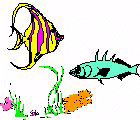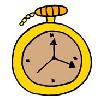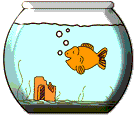State and Operations
In object-oriented programming, objects can represent actual objects in the real world, such as houses, students, fish, or clocks, or more abstract or computer-specific objects, such as lists, locations, or email messages.









| Class |
State properties / attributes (generally private) |
Operations (or Actions) methods / functions (generally public) |
|---|---|---|

|
color, owner, address | paint(newColor), sellTo(newOwner), getColor(), getAddress() |

|
size, color, location | move(), getColor(), getLocation() |

|
hour, minute, time zone | set(hour, minute), changeTZ(newZone), getHour(), getMinute() |
| "Hello!" | string contents | length(), equals(anotherString), contains(aSubString) |
Big Questions:
- When using an object, how do we know what operations are available for it?
- Given a class, how do we construct (instantiate) objects and invoke their operations?
-
The answers to these are in future videos (Reading Class Documentation, and Primitive Types vs. Classes).